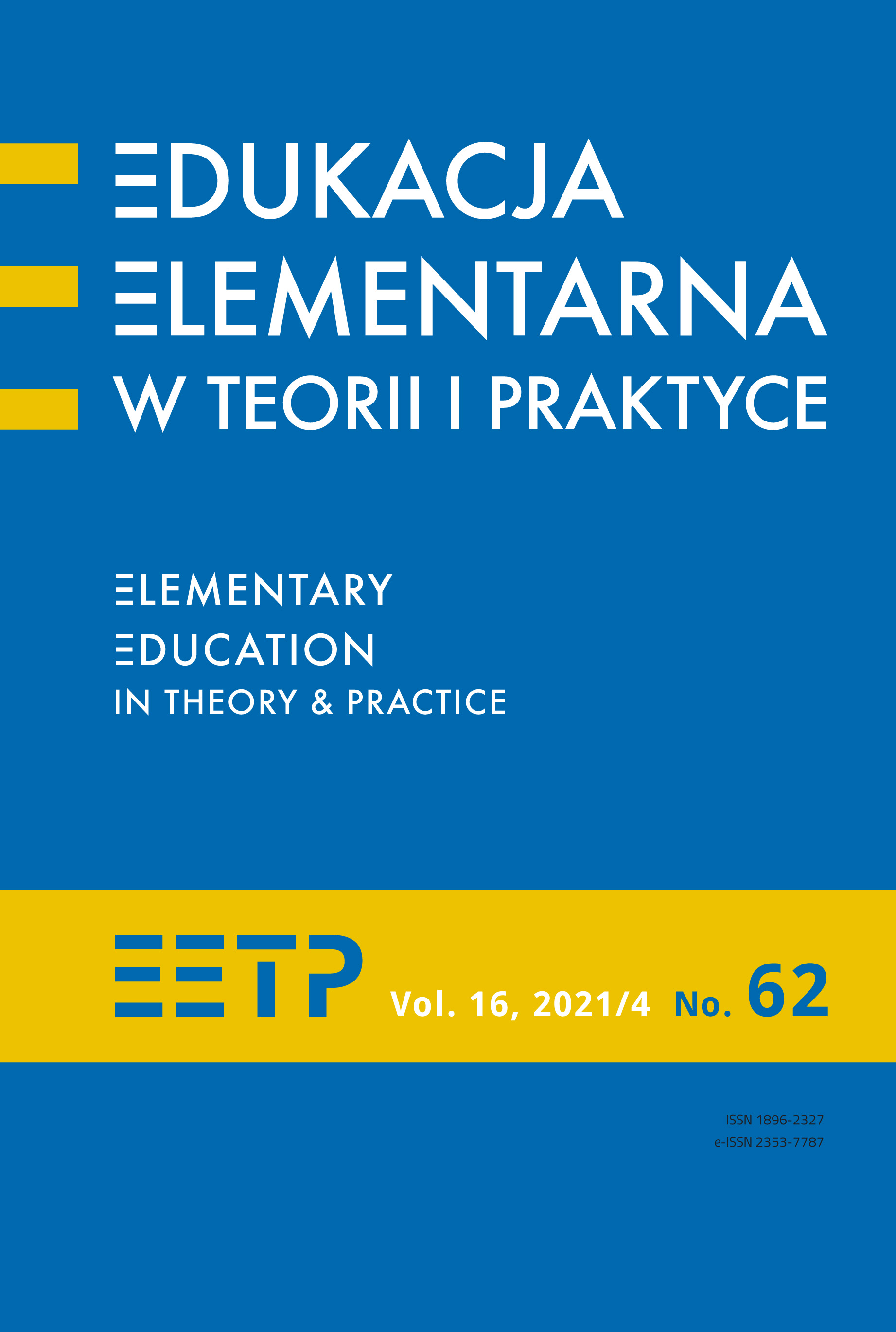Hand Therapy - from Theory to Practice. Maria Montessori’s Pedagogical Assumptions in the Light of Modern Theories
Abstract
T
The aim of the article is to present theoretical assumptions of hand therapy and to indicate therapeutic possibilities of Maria Montessori's developmental material related to the improvement of gross and fine motor skills. Modern theories related to the child’s multidimensional motor stimulation can be reflected in Maria Montessori's pedagogical concept which enables the improvement of children’s individual skills by repeating many basic activities throughout the day thanks to prepared environment. The first part of the article presents the most important stages of a child's motor development and indicates its influence on the functioning of a child's hand. Then, the author describes the main assumptions of hand therapy and presents some practical solutions in the Montessori method. Based on the analysis of the suggested development materials in the areas of practical life exercises that develop senses and speech, examples of activities that support and prepare the child for school are indicated.
References
Alvarez V., Gonzalez L. S., Nelson L. E. (2019). Do Gross and Fine Motor Skills Differentially Contribute to Language Outcomes? A Systematic Review, „Frontiers in Psychology”, https://doi.org/10.3389/fpsyg.2019.02670 [dostęp: 20.09.2021].
Cieszyńska J., Korendo M. (2007). Wczesna interwencja terapeutyczna. Stymulacja rozwoju dziecka od noworodka do 6 roku życia, Kraków: Wydawnictwo Edukacyjne.
Hellbrügge T. (2009). Zasady pedagogiki Montessori jako pomoc terapeutyczna. Zalety pedagogiki montessorańskiej w placówkach integracyjnych, [w:] Dziecko i dorosły w koncepcji pedagogicznej Marii Montessori – teoria i praktyka, red. B. Surma, Łódź–Kraków: Wydawnictwo Palatum.
Melucco P. Życie praktyczne: „wczorajsza” innowacja dziś okazją sprawdzania się w relacjach ze środowiskiem i innymi osobami, [w:] Pedagogika Marii Montessori w Polsce i na świecie, red. B. Surma, Łodź–Kraków: Wydawnictwo Palatum.
Montessori M. (2014). Odkrycie dziecka, Łódź: Wydawnictwo Palatum.
Piotrowska-Madej K., Żychowicz A. (2017). Smart Hand Model. Diagnoza i terapia ręki u dzieci, wyd. 1, Gdańsk: Wydawnictwo Harmonia.
Surma B. (2016). Edukacja językowa w koncepcji pedagogicznej Marii Montessori, „Edukacja Elementarna w Teorii i Praktyce”, (23/1), s. 62–76. https://czasopisma.ignatianum.edu.pl/eetp/article/view/373/632 [dostęp: 3.09.2021].
Surma B. (2016). Innowacyjne rozwiązania w metodzie Marii Montessori, „Edukacja Elementarna w Teorii i Praktyce, 1 (22/4), s. 9–24. https://czasopisma.ignatianum.edu.pl/eetp/article/view/492/657 [dostęp 3.09.2021].
Copyright (c) 2021 Elementary Education in Theory and Practice

This work is licensed under a Creative Commons Attribution-NoDerivatives 4.0 International License.
- When submitting a text, the author declares that he/she is the Author of the article (hereinafter referred to as the “Work”) and:
- he/she owns the exclusive and unlimited copyright to the Work,
- is entitled to dispose of the copyright to the Work.
Declares that it does not infringe any third party copyrights or legal rights.
Declares that there is no conflict of interest.
2. At the same time, the Author grants the Ignatianum University in Cracowa royalty-free, non-exclusive and territorially unlimited licence to use the Work in the following fields of exploitation:
- recording the Work in a hard copy, as well as on a digital or magnetic medium;
- reproduction of the Work using any technique, without limitation of the number of editions or copies;
- distribution of the Work and its copies on any medium, including marketing, sale, lending, and rental;
- introduction of the Work into a computer memory;
- disseminating the Work in information networks, including in the Internet;
- public performance, exhibition, display, reproduction, broadcasting and re-broadcasting, as well as making the Work available to the public in such a way that everyone can have access to it at a time and place of their own choosing;
- within the scope of dependent rights to the Work, including in particular the right to make necessary changes to the Work resulting from editorial and methodical development, as well as to translate the Work into foreign languages;
The licence is granted from the moment of the transfer of the Work to the Ignatianum University in Cracow. The Ignatianum University in Cracow is entitled to grant further sub-licences to the Work within the scope of the right granted. The licence is time-limited and it is granted for a period of 15 years, starting from the date of its granting.
Authors are permitted and encouraged to publish their text online (e.g. in their institution’s repository or on the institution’s website) before or during the submission process as this may lead to beneficial exchanges, as well as earlier and greater citation of the published text (See The Effect of Open Access). We recommend using any of the following portals of research associations:
- ResearchGate
- SSRN
- Academia.edu
- Selected Works
- Academic Search




